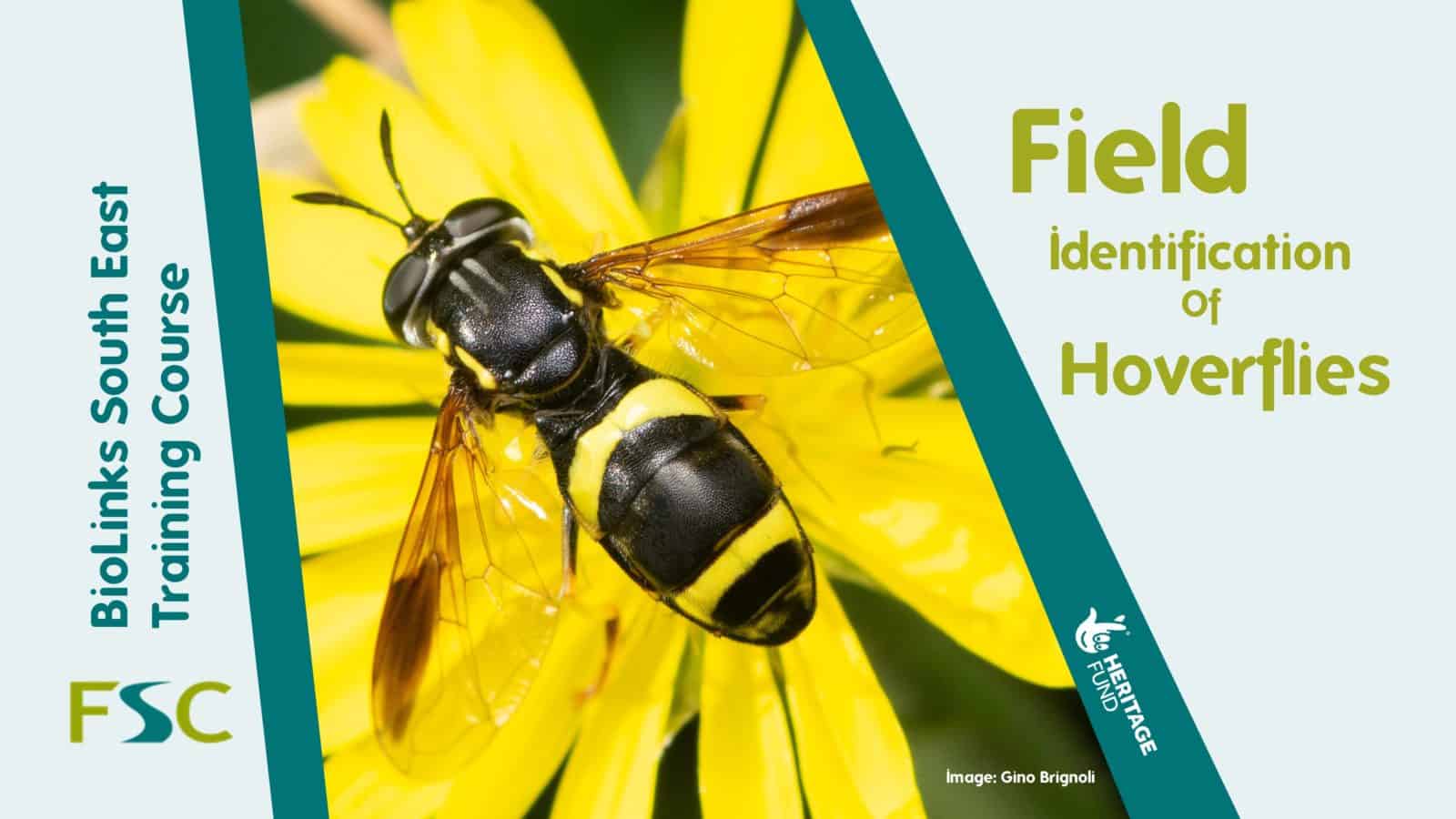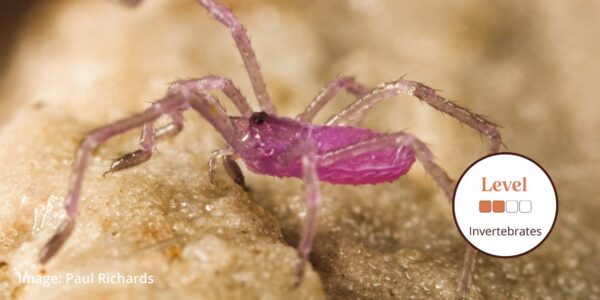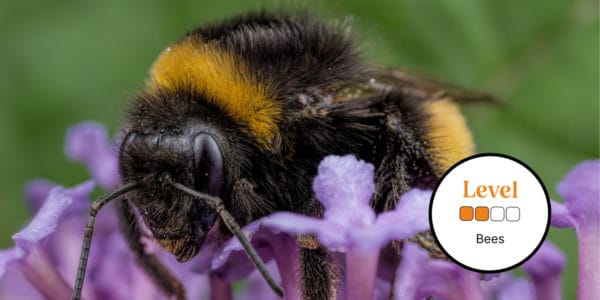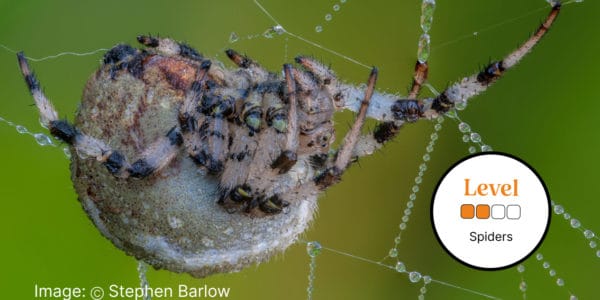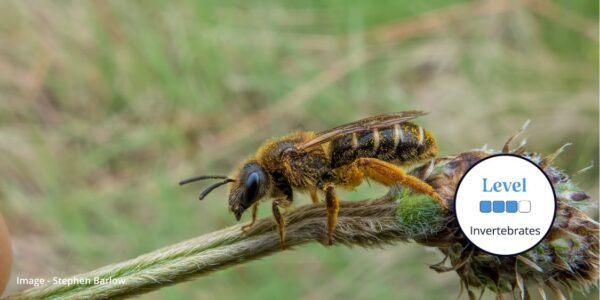There are around 283 hoverfly species in the British Isles with many showing very distinctive colouration and patterning so that they can be identified in the field. Join our tutor in the field to search for, find, and discuss the identification features of a variety of UK hoverfly species that can be identified in the field.
Learn about the different tribes and species of hoverflies and how to tell them apart. We will be using Britain’s Hoverflies: A Field Guide by Stuart Ball and Roger Morris – copies will be available to use from our library, but please feel free to bring your own.
This course combines classroom-led learning and outside learning opportunities led by a specialist tutor to give learners the skills to be able to identify distinctive species of hoverfly in the field.
- Certificate upon course completion.
- Please email [email protected] if you have any questions.
- This course is limited to the identification of distinctive species that can be identified in the field.
This course is aimed at adults only and course attendees must be at least 18 years old in order to attend.
What will be covered during this course?
- An introduction to hoverfly classification and how their morphology and ecology are interconnected.
- Identification of distinctive species of hoverflies using a hand lens and field characters.
- Support from a specialist hoverfly tutor when practicing field identification techniques.
- Guidance on how to submit hoverfly records.
- An introduction to FIT Counts (flower-insect timed counts for pollinators).
See the ‘Example Timetable’, ‘What’s Included’ and ‘Before You Attend’ sections below for more information about this course.
Course Fees
Regular Price: £75 For professionals and residents outside of the UK. Select ‘Attendee: In Person’ Sold Out
Subsidised Price: £10 Subsidised by the FSC BioLinks project for non-professionals eg. volunteers, biological recorders, wildlife gardeners, amateur naturalists and students. Available to UK residents only. Select ‘Attendee Subsidised: In Person’
Tutor: Martin Harvey
Martin Harvey is an entomologist and biological recorder. He is based at the UKCEH Biological Records Centre, working on projects such as PoMS and iRecord. Martin is also a tutor for the Field Studies Council and teaches various courses that focus on invertebrates and biological recording, including the Identifying Insects Using Specimens and Microscopes course delivered as part of the MSc Biological Recording & Ecological Monitoring with Manchester Metropolitan University. In his spare time, Martin has been County Moth Recorder for Berkshire for over 20 years and runs the national recording scheme for soldierflies and allies, which includes robberflies, horseflies, bee-flies and snipeflies among others. .Covid Measures
In order to keep our customers and staff safe we ask that anyone attending our centres:
- wears a face covering when in shared indoor space (unless exempt).
- maintains social distancing.
- cleans their hands regularly.
- takes a Covid-19 test before they arrive.
Example Timetable
- Please arrive in time for the course to start promptly at 10:00 am.
- Refreshments will be available from 9.45 am.
- The course will end at 4:00 pm.
What's Included
- 6 hours of tuition.
- Certificate of attendance.
- Access to identification resources.
Bursaries and Subsidies
FSC BioLinks
FSC BioLinks is an exciting project for FSC in the South East and West Midlands, bringing together existing volunteers with skills in biological recording and identification, and new volunteers.
This project provides subsidised training courses, learning opportunities and digital tools focussed on invertebrate identification for anyone involved or interested in biological recording, to build and strengthen the community.
Invertebrates provide us with many useful ecosystem services, like pollination and decomposition, which we cannot survive without but their numbers are declining. Few people know how to identify or record invertebrates meaning there is a lack of data.
We are delighted to have been awarded a grant of £1.23 million from the National Lottery Heritage Fund for this project.
Before You Attend
Getting to FSC London: Bushy Park
Information on getting to the site can be found here.
When you arrive at The Stockyard gate you may need to call the centre to open the gate. You can reach the staff on site on 020 8941 4398.
Due to the outside nature of part of this course, participants are advised to bring suitable clothing and footwear in order to access the Bushy Park site in various weather conditions.
This BioLinks course has aspects that will be taught outdoors with walking to field sites over uneven ground. No special preparation is required providing you are used to gentle exercise. If you have any concerns or questions about access or the activities involved, please get in touch.
What to bring
- Notebook and pencil
- Lunch
- Hand lens (if you have one)
Please note that this course will involve using specimens that have been killed and preserved.
There will be a member of staff with first aid training and access to a first aid kit on site. If you have special medical requirements please let us know as soon as possible so we can plan the course.
Sorry this course has ended

